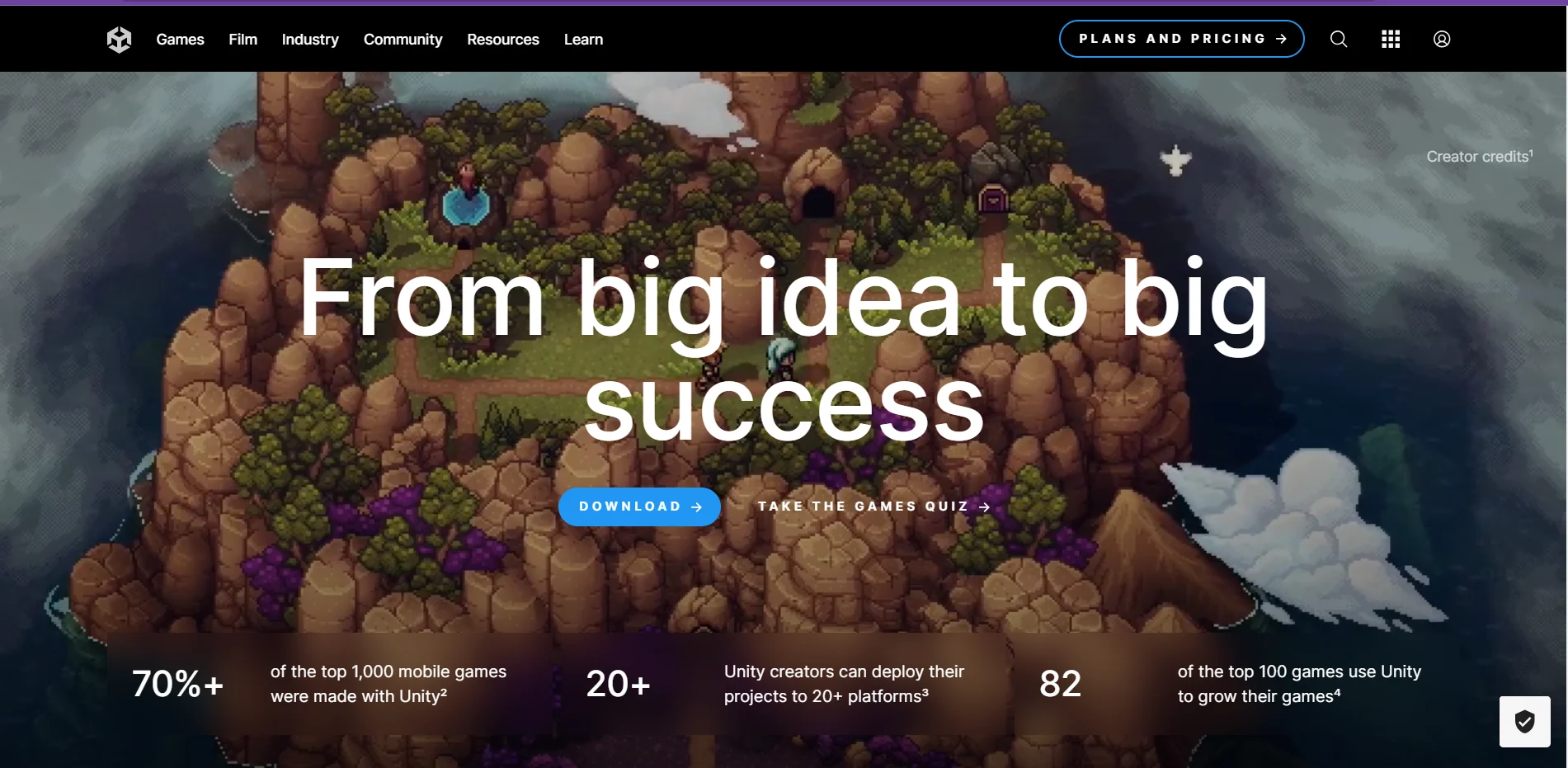
Update: This article was last updated on 3rd January 2024 to reflect the accuracy and up-to-date information on the page.
Are you looking for a way to nurture your child’s passion for video games and help them develop new skills? Look no further than Unity, the most popular platform for game development.
With Unity, your child can explore their creativity, learn to code, and create video games from scratch. In this article, we’ll explore 10 exciting activities you can do with your children to help them learn about Unity game development.
10 Activities for Children to Learn About Unity Gaming Platform
1. Learn to create games from scratch
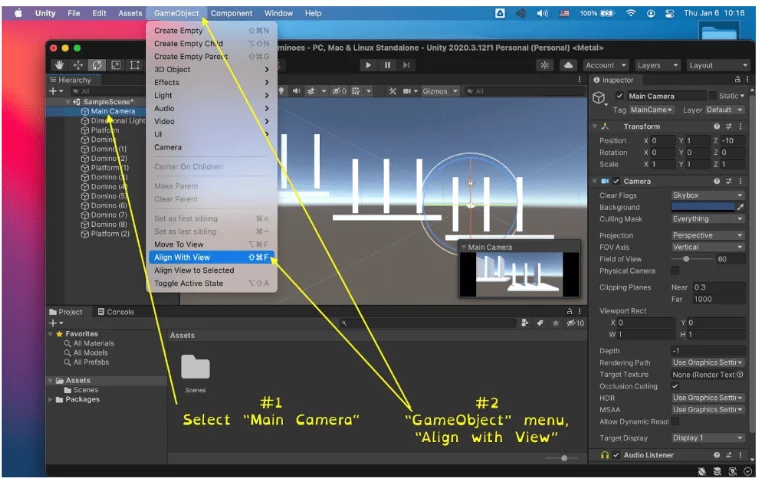
The first step to learning anything new is to learn the basics. Take an hour or two daily and teach your kids about game creation using Unity. The objective of this 1:1 interaction should be to help your kids develop valuable skills in coding, design, and problem-solving. It will also encourage their creativity and help them think critically about how games are created.
To get started, walk them through the game development process using Unity. There are many resources, books, tools, and even tutorials that you can explore with them to help them understand the ins and outs of the platform.
Once they have gained some Unity experience, you can encourage them to start creating their games. Start with simple games like puzzle games to help them understand the basic mechanics of the game. Do encourage them to add their creativity and personality to the game.
2. Modify pre-built games
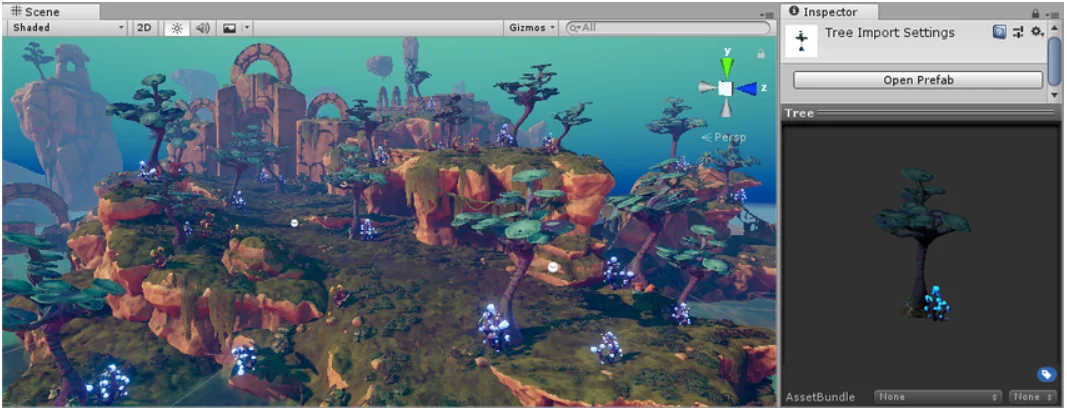
This is an effective way to help kids learn about different elements of game creation. In this activity, you can introduce your kids to pre-built Unity games and challenge them to modify them. Provide them with simple games like a platformer and encourage them to change the graphics, add new features, or adjust the gameplay.
During this activity, you can also teach them how to use Unity’s scripting language, C#, to add new features or modify existing ones.
Next, you can guide them through modifying Unity games by showing them how to use the Unity editor while aiding them with the right tools to understand the different elements of a game, such as game objects, scripts, and physics.
3. Challenge them to analyze games
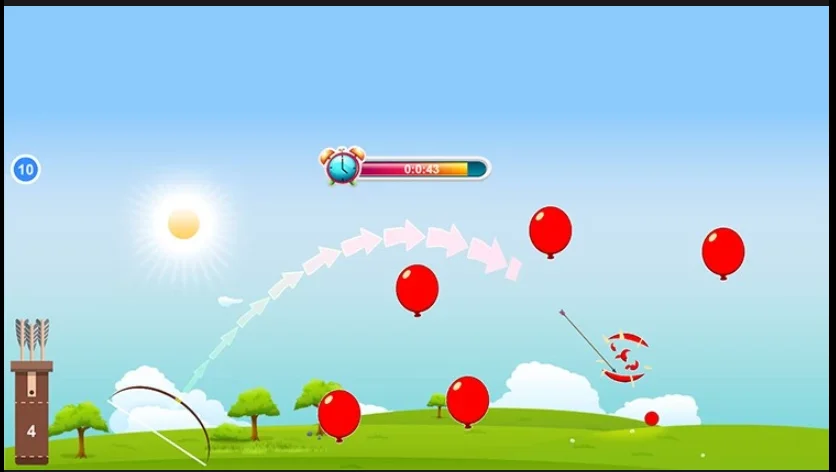
Give them a variety of games, from simple to complex ones, and ask them to identify the different components, such as characters, levels, animations, and sound effects. You can also encourage them to apply what they have learned by creating their game design documents. They can use this exercise to invent new games and plan out the different components needed to make their game a success.
You can organize game analysis challenges or competitions for your kids to make the learning process more fun.
Recommended Reading: 10 Technical Skills Kids Should Have in 2026
4. Review Games
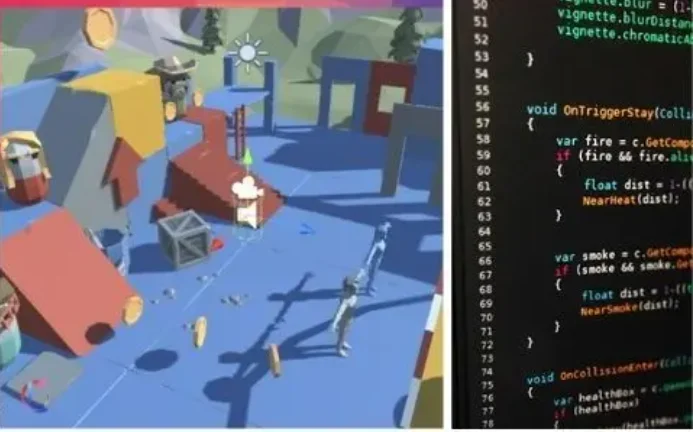
Game review is an exciting activity that allows children to evaluate different aspects of a game. By writing reviews, children can share their opinions and ideas with others, develop communication skills, and sharpen their writing abilities.
Moreover, reviewing games can be an excellent opportunity for children to explore their passion for game development and potentially make a career out of it. Your child might become the next big game reviewer or designer!
You might start by providing your child with various Unity games to play and review. Encourage them to play the games thoroughly and take notes.
Once they have played the game, help them organize their thoughts and opinions into a structured review. To make the activity more exciting, you can challenge your child to write reviews for different types of games, from puzzle games to adventure games, and see how their writing style and critical thinking skills differ from game to game.
5. Organize a Unity Game Online Event
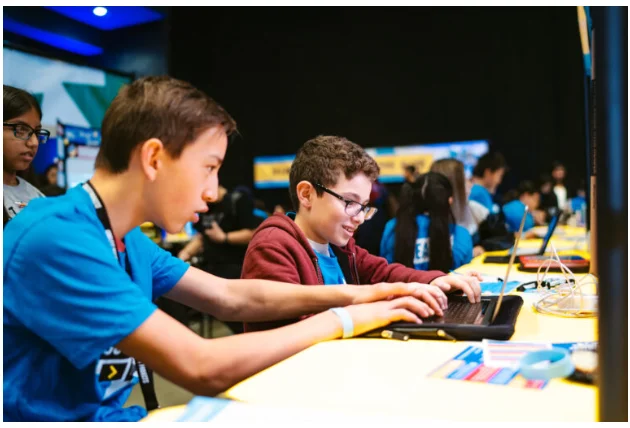
Imagine how wonderful it would be for your kids to organize a show for their games and present them to an audience of family, friends, and fellow gamers!
This small, online event can allow your children to demonstrate their game development skills, gain recognition for their creativity, and inspire others to pursue game development as a hobby or career.
To organize the show, you can help your children create a plan and set objectives for the event. They can decide on the type of games they want to showcase, the audience they want to target, and the resources they need to make the event successful.
To make the show even more engaging and entertaining, your children can organize game competitions, raffles, or giveaways. They can also invite guest speakers, such as game developers or designers, to share their experiences and insights on game development.
6. Collaborative Game Development
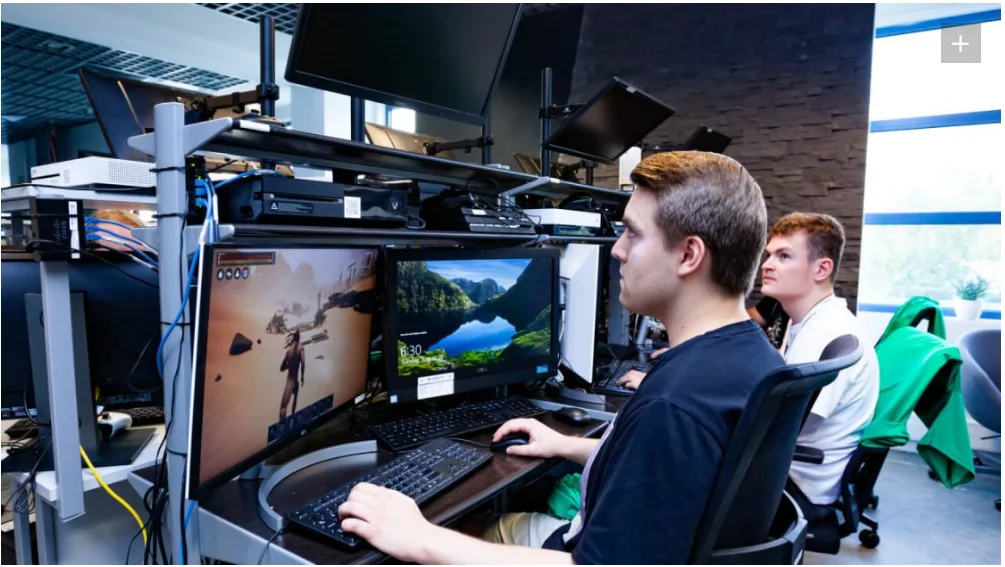
Collaborative game development with Unity fosters teamwork and much more. For instance, they gain a better understanding of the technical aspects of Unity while honing their communication, team-building, and project management skills.
This practical activity also encourages a sense of accomplishment and emphasizes the significance of working together to achieve a shared goal.
7. Interactive Storytelling with Unity
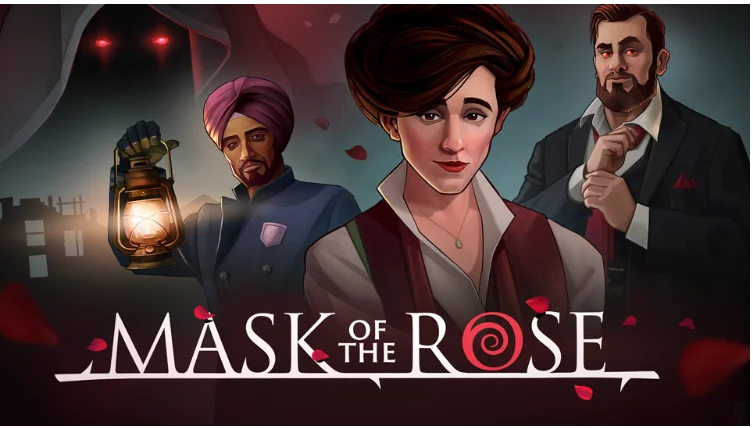
Connect the dots between storytelling and game design by teaching kids how to create interactive stories using Unity. It’s not just about technical skills, as they’ll learn how to add branching stories, options, and consequences to their games.
This dual-purpose activity not only improves their technical skills but also teaches them the basics of storytelling and narrative design, giving them a comprehensive approach to game design.
8. Introduction to Virtual Reality (VR) Games
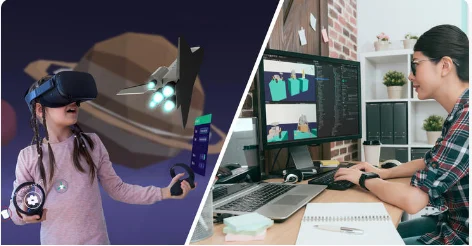
Enhance the experience with VR game creation. This introduces children to the fundamentals of VR game creation, providing a hands-on, interactive experience that expands their knowledge and understanding of the latest technologies. Not only does this futuristic journey excite their curiosity, but it also puts them at the cutting edge of new trends in the game industry.
9. Cross-disciplinary Exploration: Art and Unity
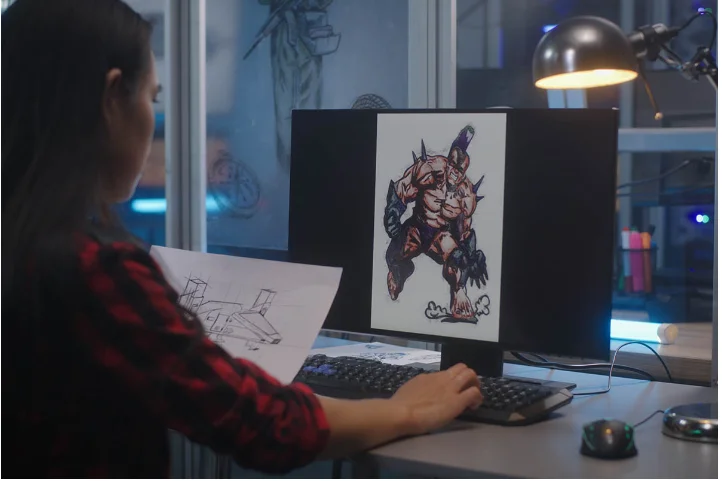
If your child is good at art, you can expand their artistic skills by integrating art into Unity game development. Start by introducing them to the basics of digital art and show them how to incorporate their art into their Unity projects. This cross-disciplinary approach not only improves their technical skills but also develops their artistic skills, creating a holistic understanding of how technology and creativity work together.
10. Unity Game Development Club
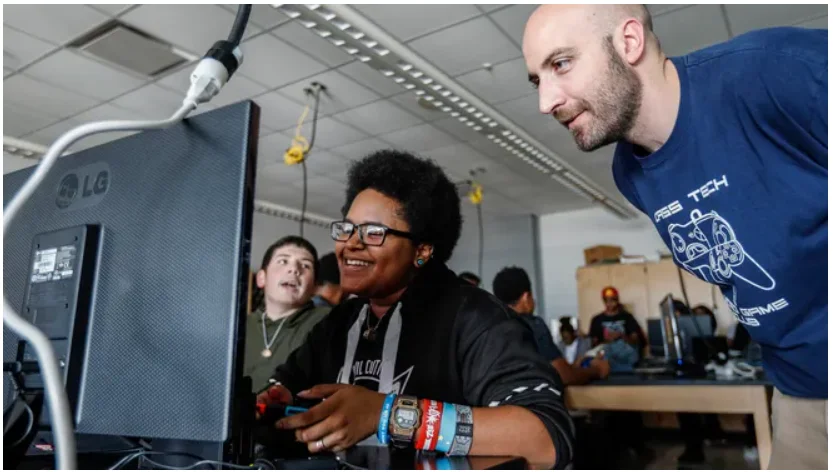
Create a club for children to join and develop their skills in Unity Game Development. This club will provide them with a supportive environment in which they can share their ideas and collaborate on projects, as well as learn from each other. This club will also develop their social and networking skills, which will lead to a stimulating environment for them to share their love of game development.
Additional Tips:
Beyond the 10 activities listed above, here are some additional tips to enhance your child’s Unity learning experience:
- Join online communities and forums: Connecting with other young developers provides a platform for sharing ideas, getting feedback, and collaborating on projects.
- Participate in game jams and challenges: These events encourage creativity, problem-solving skills, and the ability to work under pressure within a set time limit.
- Attend workshops and events: Such gatherings offer hands-on learning opportunities, expert guidance, and exposure to new tools and technologies.
- Learn advanced skills: As your child gains experience, encourage them to explore advanced topics like animation, multiplayer functionality, and artificial intelligence.
- Build a game portfolio: Documenting their progress and showcasing their work in a portfolio helps them track their growth, gain valuable feedback, and attract potential opportunities.
Conclusion
By supporting your children in their game development journey and providing them with opportunities to showcase their creations, you can help them build confidence, nurture their passion for game development, and potentially pave the way for a future career in the gaming industry!
Moonpreneur is dedicated to transforming conventional education, preparing the next generation with comprehensive learning experiences. Our Innovator Program equips students with vital skills in AI/ML, Robotics, Coding, Game Development, and App Development, fostering entrepreneurship through hands-on learning. This initiative aims to cultivate the workforce of tomorrow by integrating innovative technologies and practical skills in school curriculums.
Register for a 60-minute free workshop today!


























Is Unity software free to use?
Unity is licensed to you via the Unity Personal plan that means it’s a commercial product, with a licence agreement
What other software programs are like Unity?
Other game development software programs similar to Unity include Unreal Engine, Godot Engine, CryEngine, and Cocos2d.